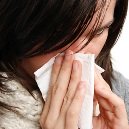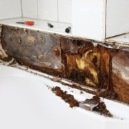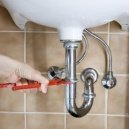Find a pre-screened local mold removal specialist Free Estimate
Find a Mold Specialist Now
Click or Call, Toll-Free 24/7
Difficulty Concentrating From
Toxic Mold Exposure
Can exposure to toxic mold cause difficulty concentrating? Both the Centers for Disease Control and Prevention and the U.S. Environmental Protection Agency report that the most common symptoms related to mold exposure are allergic reactions and respiratory symptoms. You can read more about mold allergies and about respiratory problems related to mold. While those agencies don’t mention problems with concentration at all on their websites, some people do report developing difficulties with concentration after being exposed to mold. We found a few studies on the subject and we’ll tell you what they say.
First, though, a word about mold and whether or not it is toxic. Often, people use that term to refer to Stachybotrys chartarum, which is also sometimes referred to as black mold. Stachybotrys chartarum itself is not toxic, but it does produce mycotoxins, chemicals that are toxic. Many types of mold are harmful, though, and people may refer to many types as toxic even if technically they aren’t.
What Does the Research Say About Mold and Difficulty Concentrating?
Well, let us start by saying we hope to see more research on this subject. What research we’ve seen, though, does indicate that there is a connection between exposure to mold and difficulty concentrating. One study, published in the Archives of Environmental Health, examined 100 patients that had been exposed to mold. Neuropsychological evaluations of the patients found neurological impairments in nearly half of them. Forty-six percent had trouble with concentration as well as short-term memory. You can read more about the effect of mold exposure on memory.
Why is the Ability to Concentrate Important?
Concentration is the ability to focus on a task. If you have difficulty concentrating, it may manifest itself in many ways. You may be forgetful. You may have trouble completing assignments at work or school and trouble completing tasks at home. You may find it difficult to carry on a conversation or hard to remember and follow directions. You may have trouble understanding what you read. You may find it difficult to pay attention while driving a car. The ability to concentrate is extremely important and social relationships, jobs, education and other parts of your life may suffer if your ability to concentrate suffers.

So What Should You Do if You’re Experiencing Trouble Concentrating?
See your doctor if you are finding it increasingly difficult to concentrate on things. Everyone has days when it’s hard to pay attention or when their mind seems to wander, but if you notice a pattern of increasing difficulty focusing on the task at hand, you need to see your doctor.
Lots of things other than exposure to toxic mold can affect your ability to concentrate, including insufficient sleep, stress, depression, attention deficit hyperactivity disorder (ADHD), migraines, hormonal changes such as those that occur with pregnancy, nutritional deficiencies, dehydration, lack of exercise, head injury, and excessive use of alcohol or drugs. It is important to determine the cause of your difficulty concentrating so that you get the proper treatment.
In order to make an accurate diagnosis, your doctor may order some tests, such as blood tests, a CT scan or an MRI. You may also be referred to a specialist, like a psychologist, psychiatrist or neurologist. Be sure to let your doctor know if you’ve been exposed to mold and think that might be having an impact on your ability to concentrate. Also let your doctor know about any other symptoms you are experiencing.
Your doctor will prescribe the appropriate treatment based on your diagnosis. In addition, if mold is the cause of your poor concentration, your doctor will most likely advise you to avoid further exposure to mold. If you continue to be exposed to mold, your condition may not improve and may even get worse, despite medical treatment.
Mold Removal
If mold in your home is causing health problems, including an inability to concentrate well, you’ll need to have the mold removed as soon as possible. We recommend not doing the work yourself because the mold removal process will just expose you to more mold spores that can make your condition worse. Even if you’re not sure you want to hire someone for the job, though, we recommend scheduling a free consultation with a mold removal professional. There is no cost and no obligation, so you have nothing to lose, and you can benefit from some expert advice from an experienced professional. Just follow this link to find qualified professionals offering free in-home consultations in your area.
Return From Difficulty Concentrating To Our Main Symptoms Page
Free Home Inspection By A Mold Removal Specialist
Search This Website
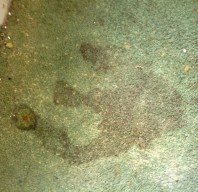 Moldy Carpet
Moldy Carpet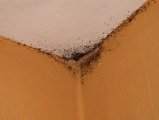 Walls and Ceiling
Walls and CeilingRecent Articles
-
See Our 5 Recommended Mold Removal Companies in Covington, KY
Apr 16, 25 12:59 PM
-
See Our 5 Recommended Mold Removal Companies in Wheaton, IL
Jun 20, 24 10:33 AM
-
See Our 5 Recommended Mold Removal Companies in Aberdeen, SD
Oct 08, 21 04:05 PM

